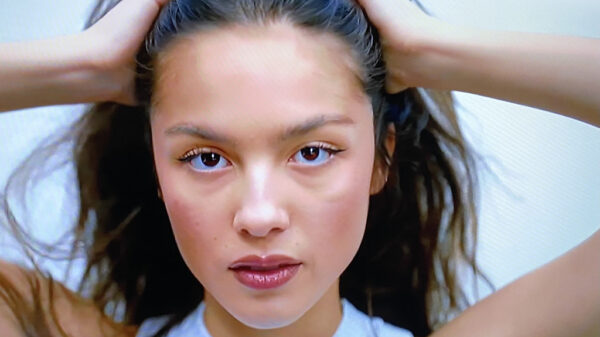Staff writer Caroline Vlachakou critiques gender expectations and our implicit deference to the male gaze. She makes a powerful plea to her generation – persist with the eradication of patriarchal norms.
From a young age we all find ourselves beneath the daunting gaze of obsolete ideals. As children, most try to conform with them; as teenagers to rebel against them; as adults to just ignore them. We assume ourselves to have become so intellectually and spiritually developed that archaic values hold no place in our minds. Yet patriarchal ideas are so deeply engraved in the skeleton of society that it is impossible to be rid of them.
It is admittedly a scary and rather bleak thought to suppose that such antiquated beliefs have trespassed for good into the pathways of our brains and now perpetually roam our heads. We don’t want to consider that they may not only pollute our own pursuit of self-acceptance, but even potentially doom society’s attempts to live by gender fairness.
But it is not too late. Not for us and definitely not for younger generations. We need to be mindful when coming in contact with the malleable and naïve minds of the future. Accidentally indoctrinating children is not at all uncommon; often it is done with the best intentions.
To give a young girl a boost of confidence one may tell her that they know “all the boys are running after her.” A correlation between the female value of self and appealing to the male gaze is prevalent in society. The male gaze can be defined as “the assumption in visual and creative arts that the default or desired audience consists of heterosexual males, and inclusion of women in narrative or art should seek to please this audience with the objectification or sexualization of these depicted women.”
The male gaze is applicable to real life. Young girls are continuously exposed to it – taught to chase it, crave it. The concept of women inhabiting roles to satisfy patriarchal standards might seem like an idea of the past – and it undoubtedly should be. Yet how and why is this outdated idea still prevalent in our society? How are young pushed into these molds? Is it possible to shake off this problematic social framework? In what ways do we, often accidentally, corrupt the youth?
Patriarchal Standards in Early Social Life
When ‘comforting’ a little girl who’s just had her hair pulled by a boy by telling her that he probably likes her, one sets a very dangerous precedent. Not only is this creating a heteronormative foundation, both in terms of sexuality and gender identity, but this excuses harmful behaviour by dismissing it as a child just being unable to express their feelings. This is usually not followed by helping said child learn how to express their feelings appropriately – instead, the lesson is that it should be ‘tolerated’ by the victim.
Anticipating a conservative response, no one is denying children the right to play. Kids are going to playfight – they have from the beginning of time and will probably continue until the end. But harmful behaviour should be recognised as harmful behaviour.
When conflict arises and a child is understandably emotional, do not recite the indoctrinating ballad of “boys don’t cry” or that “big girls don’t cry” (interesting how for girls, age is necessary to convey a false maturity). The correct response to violence is not to excuse it, but to inform the perpetrator that what they did was wrong, ask them what caused their action, and explain that no matter the case, this response is not appropriate. They are obliged to apologise and to develop different ways to express their feelings. Do not invalidate the feelings of the victim.
The patriarchal notion of suppressing emotions is augmented for boys. ‘Being a man’ implies a need to strip yourself of feelings – these are weaknesses. Being guarded and emotionless is applauded. Progress here needs to emanate from home; parents urging children to express their feelings. Strong emotions are not ‘girly’, they are not ‘manly’ – they do not need a gender assigned to them. Feeling is necessary for psychological health.
Children need to be educated about gender but this does not require attaching gender to societal activities. As soon as this attachment is established, the concept of gender is interwoven with senses of shame and guilt. Kids need to feel comfortable with the concept of gender and to be free to explore it and question it in order understand their own identity. Using gender to shame the expression of emotion makes this progress impossible.
Educational Environment
We are all, to some extent, familiar with the repercussions of school dress codes. Operating on a heteronormative foundation, dress codes sexualise young girl’s bodies, and make the difficult undertaking of accepting your changing appearance in teenager-hood even tougher. Not only are bounds strictly set in terms of self-expression, but there is a constant judgemental eye in a place where most young people spend the majority of their time.
“Within our education system dress codes teach and enforce sexism starting from a young age. Rather than teaching young girls to hide themselves and be ashamed, we should start teaching to treat women with respect and see them as equal participants in the educational system” comments Haley Hartnett. The ideas which are implemented into young girls’ minds are not easily scraped away after leaving the school gate – they follow them throughout their lives.
Most of us support the abolishment of school dress codes, yet when, now grown up, we walk into a job interview we will rarely wear a skirt with a hem higher than our fingertips. Even if you are an individual who stands by your beliefs and does not change the way you express yourself through your appearance, there is a need to recognise the luxury and privilege in that. Not bending our values is commendable, but getting a job and supporting a family is more significant for most.
Our hypocrisy is not our own fault. No matter how much we believe in the right to express an identity through appearance, there is a large risk involved with self-expression if does not adhere to patriarchal standards. It’s understandable that young people don’t want to take a risk after landing an important job interview. We bite our tongues and wear our blazers. It seems that change cannot come from us; change needs to come from up high the corporate ladder. To shake institutionalised ideals, progress needs to come from institutions themselves.
Conclusion
The ways that patriarchal ideals are pumped into people’s minds are endless. From the media we consume, to our treatment by family and friends, to the academic system, the list goes on.
We owe it to not only to future generations, but also to ourselves, to help provide what we were cheated of. It is thereby our duty to help instil ideas of gender fairness, equality and justice. We need to recognise all the nooks and crannies where poisonous patriarchal standards hide; we need to examine their mindlessness and do our best to diminish their value. Persisting against patriarchy will uphold the values of the future.


















